










underprivileged township and rural schools. We are proud of this digital leadership in education, which seeks not only to stimulate enquiring young minds, but prepare them for the future world of work.
As much as digital advances allow us to automate, replicate and compute, it is our people who drive the technology and the progress it brings. In this regard, we place great confidence in our academics to ensure that technology serves us as an equaliser to achieve equity and justice and does not replicate inequality. It is imperative to balance technological developments with human expertise to ensure fairness, transparency, and enhanced learning outcomes. At the 10th Flexible Futures Conference, which addresses innovation in higher education, the message was clear: there needs to be greater creativity and critical thinking from humans in order to make AI technologies more transparent.
Generative AI is transforming every aspect of society, and UP is at the forefront of ensuring that both lecturers and students are equipped to navigate this technological shift. To support this transition, UP has developed comprehensive guidelines for the effective and responsible use of AI in teaching and learning. This resource serves as an introduction to the educational applications of generative AI, highlighting its potential benefits, limitations, and ethical considerations.
By offering a deep understanding of these factors, the guidelines empower instructors to thoughtfully integrate AI tools into their courses. They also encourage lecturers to adapt their teaching and assessment strategies, ensuring that students are prepared for a world increasingly enhanced by AI. These efforts reflect UP’s commitment to fostering an innovative, responsible, and forward-thinking academic
Universities that will thrive in a world dominated by intelligent systems… will be the ones that are most adaptable to change and can creatively navigate a new way forward. In this networked information age, creativity may well be the new human superpower.
environment where technology can be leveraged to improve the learning experience and equip students for future success.
Universities that will thrive in a world dominated by intelligent systems and data science will not necessarily be the largest nor those with the highest rankings, but the ones that are most adaptable to change and can creatively navigate a new way forward. In this networked information age, creativity may well be the new human superpower.
Justice Sisi Khampepe Chancellor
over two decades. The plan emphasises the need for a holistic approach to transformation, focusing on inclusivity, diversity, and the decolonisation of curricula. It advocates for transdisciplinary and cross-faculty collaboration to create a dynamic and inclusive educational environment.
The Senate Conference in 2024 provided various platforms to explore and propose practical solutions for enhancing curricular community engagement (CCE). The theme – ‘Teaching with impact: Advancing curricular community engagement for societal transformation’ – encouraged innovative thinking and reimagined practices to develop students as problem-solvers and socially responsible citizens.
The University’s influence in creating connected communities stretches beyond campus boundaries and we never lose sight of our goal to produce well-rounded, socially-conscious graduates. An integrated academic framework, in which community engagement plays an important part in the curriculum, remains one of our core teaching strengths.
Digital transformation will play a crucial role in our inclusionary efforts. As a University we were one of the first to take the titanic technological leap into digitalisation, artificial intelligence (AI) and robotics. AI has been shown to advance culturally responsive teaching practices, contributing to a more inclusive and holistic learning environment for students.
The University, like the broader South African higher education sector, continued to contend with persistent challenges, notably, declining state funding and rising student debt. Limited growth in state subsidies and earmarked grants pose a serious threat to the University’s ability to
provide quality education and produce world-class research. Furthermore, increasing regulation of tuition fees is currently being considered which could exacerbate these challenges.
This report includes examples to illustrate how the University is contributing to the development and well-being of people and societies through cutting-edge collaborative research, among them being a world-first facility for cancer and TB drug development and clinical research.
The UP Strategic Plan 2022–2026 and Beyond requires the University to continue reimagining the future to make UP a world-class institution. We are already at the forefront of digital transformation among tertiary institutions and our international rankings place the University as a leading institution in South Africa and among the Top 100 positions globally. We are succeeding but will continue to do more.
The Council extends its gratitude to Professor Themba Mosia who served as Interim Vice-Chancellor and Principal for most of 2024 and whose steady hand guided the University to new heights. We also welcome Professor Francis Petersen who joined UP as its Vice-Chancellor and Principal on 1 October 2024, and we look forward to continue expanding the University’s influence and relevance on both local and international fronts.
Mr Ben Kruger Chairperson of Council
This desire to transform lives and society is a value espoused in our motto – “make today matter” – because we believe that in every moment lies the potential to have a positive impact on the future.
The UP Strategic Plan 2022–2026 and Beyond requires us to continue reimagining the future to make UP a world-class institution. We need to constantly evolve and innovate – and at an unprecedented rate.

The Faculty of Engineering Built Environment and Information Technology inaugurated a new Immersive Technology Lab at the Department of Information Science to broaden access to immersive technology across the University community. This initiative reflects our dedication to innovation and academic excellence, poised to advance education, research, and societal impact through immersive technology.
We also have numerous programmes aligned with our vision of the Fourth Industrial Revolution and the use of AI and cutting-edge digital technology in teaching and learning. As an example, in 2024 UP partnered with Swiss-based technology company Align Technology to train postgraduate students on the latest advances in digital orthodontic treatment.

Our agility in fast-forwarding the use of technology has enabled us to make important advances in teaching, learning, research and innovation. Using digitalisation as an essential resource, we have broadened our reach and built on each other’s areas of expertise with transdisciplinarity as the driver.


While useful in so many ways, artificial intelligence (AI) will continue to challenge our educators as they learn to navigate the evolving education landscape in the AI age. The 10th Flexible Futures Conference, hosted by UP’s Department for Education Innovation, explored the intersection of AI, academic integrity, and innovative assessment strategies. A major discussion point was the integration of AI in assessments while ensuring academic integrity. Other important themes included formative assessments for ongoing student feedback and the role of collaborative assessments in improving critical thinking.
Innovation in our teaching and learning in 2024 was evident in the integration of emerging technologies such as AI, augmented reality, and online simulations. Further enhancements involved developing peer-led learning communities, which proved highly effective in Engineering and Health Sciences, and in boosting practical and experiential learning methods.






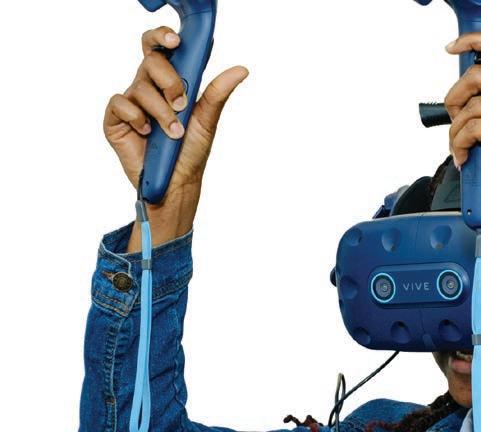













































































































































































































































































































































The University continues to attract high-calibre students from across the country, affirming our reputation as an institution of choice for academic excellence. In 2024, we experienced a further increase in top-performing students enrolling at UP, thanks in part, to our dynamic #ChooseUP campaigns. These efforts successfully drew 38 of the nation’s top academic achievers to the University.
Among them were Gauteng’s top three matriculants, each with averages exceeding 96%. Sheliza de Wet, the top learner in the province, is pursuing a degree in Medicine and Surgery. Wian van Rooyen, who achieved eight distinctions and was ranked second in Gauteng, has also enrolled in the MBChB
programme. Joining them was Jéan Goodey who was placed third overall in Gauteng and second in South Africa for mathematics. He earned seven distinctions and is studying Actuarial and Financial Mathematics.
Another impressive student pursuing Medicine and Surgery was Annalette du Plessis who obtained 12 distinctions, 11 of which are recognised National Senior Certificate subjects, with the 12th being in Advanced Mathematics. From KwaZulu-Natal, Zonke Thwala ranked third nationally among Quintile 3 schools. She achieved seven distinctions and is studying Accounting Sciences at UP.
Among the top achievers from private schools were Carine Pretorius who earned ten distinctions and is enrolled in Industrial Engineering. Takura Kufakunesu, also with ten distinctions, is pursuing a degree in Computer Engineering.
South Africa’s top academic achievers chose to pursue their studies at UP in 2024. All 38 of these exceptional students received the prestigious Vice-Chancellor’s Distinguished Merit Award (VCDMA), which provides funding for the full duration of their undergraduate studies. They have joined a unique cohort of more than 400 VCDMA recipients since the programme’s inception in 2016.











Our graduation rates for the 2024 academic year again demonstrated our capability to deliver the human capital needed to develop South Africa, our African continent, and indeed, the world. The University awarded a total of 14 990 qualifications, an increase of 667 graduates (2023: 14 323). Among the qualifications conferred were 415 doctorates, 2 064 master’s degrees, 2 887 honours degrees, and 7 167 bachelor’s degrees. In addition, 2 457 postgraduate diplomas and advanced certificates were awarded.



















The Chancellor’s medal was bestowed on two recipients:





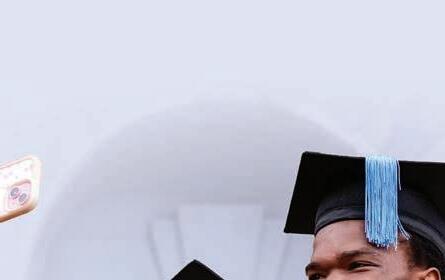































• Dr Nonkululeko Gobodo, who made history in 1987 as the first black woman in South Africa to qualify as a chartered accountant, and



• Dr Reuel Jethro Khoza, a businessman who is recognised for advocating ethical leadership, collaborative management, and sound governance across private and public organisations.

















































Attracting, developing and retaining quality staff is a core priority. It is therefore gratifying to note that we retain our top position as the university with the highest proportion of permanent academic staff who hold doctorates (75.5%), across all South African universities. The national average is around 43%. We also have the highest number of NRF-rated researchers (580) of all universities and research institutions in the country.
Thanks to the efforts of this qualified corps of academics, we also enjoyed admirable subject rankings. In the 2024 THE Subject Rankings, we maintained or improved our performance in most subject areas compared to 2023. UP’s Law programme reaffirmed its place as the top-ranked Law faculty in Africa and South Africa, with its high global standing (No. 65 in the world).
In the 2024 Quacqarelli Symonds Subject Rankings, UP was ranked in the global top 100 for Minerals and Mining, Veterinary Sciences, and Development Studies. It was further rated the best place in South Africa to study for seven subject fields: Mechanical Engineering; Veterinary Science; Mathematics; Accounting & Finance; Economics & Econometrics; Electrical & Electronic Engineering; and Law.
Our research pipeline is being replenished most satisfactorily. Master’s and doctoral enrolments continued to grow, as well as the number of international postdoctoral fellows and international academic staff. The visibility of our lead researchers is demonstrated in the Essential Science Indicators (ESI) database, where UP was once again rated among the top 1% globally in 14 of the 22 fields. Our researchers produced the most publications within the fields of Economics and Business, Microbiology, and Plant and Animal Science in South Africa.
In 2024, financial aid to UP students increased by 7%, totalling R2 253 million. Contributions from the University’s own funds rose by 13%, reaching R201 million.
External funding plays a vital role in helping to expand our impact in educating and developing the next generation of leaders who will drive social and economic transformation. UP receives support from three key donor groups: corporations, which account for 35% of contributions; foundations and trusts that contribute 30%; and local aid agencies.
The Mastercard Foundation remains one of UP’s most significant donors. In 2013, UP became the first South African university to partner with the prestigious Mastercard Foundation Scholars Program, which empowers academically talented young people from economically disadvantaged communities to access quality tertiary education.
The UP Giving Matters campaign ended its three-year stint by exceeding its ambitious goal of raising R100 million by 2024 to supplement the University’s dayto-day fundraising activities. By December 2024, it had exceeded its target, raising R117.7 million and directly benefitting more than 530 students. The campaign raffled a beetle as part of its efforts.
Phase 1 of this ten-year partnership exceeded expectations, having supported 397 scholars from diverse African backgrounds by the end of 2023. The Foundation renewed its commitment from 2024 with a contribution of R178.6 million for Phase 2 of the programme.
The Department of Institutional Advancement’s dedicated fundraising efforts led to the University raising R245.2 million by the end of 2024. Of this amount, R130.7 million was directed to support 1 987 “missing middle” students – those who do not qualify for government funding but cannot afford university fees. The remaining funds supported a variety of impactful initiatives, including a smallscale farming project designed to promote food security and entrepreneurship.


This report captures just some of the remarkable achievements that have contributed towards UP being recognised with the Most-Improved Sub-Saharan Africa Award in the 2025 QS World University Rankings. This award is conferred on the institution that has demonstrated the most significant improvement in their ranking over a five-year period, underscoring our commitment to continuous progress.
While we have strengthened the University’s research, international profile, and global engagement, we remain aware of the challenges faced by higher education. We continue to navigate these with resilience and determination to leverage opportunities for growth and impact, and to reaffirm our position in academic innovation.
Our scientists continue to position the University as a significant research-intensive university in Africa by leading collaborative teams that produce groundbreaking research.
Two contributions that will have a profound effect on global well-being include studies of how the naked mole rat is able to withstand heart attacks and fend off bowel cancer, two of the most fatal human ailments in the developed world. These findings were published in two Nature Communications papers. Professor Nigel Bennett and Dr Daniel Hart, co-authors on both papers and experts in mole rat evolution at UP’s Department of Zoology and Entomology, have indicated that the findings add to a long list of mole rat ‘superpowers’ that have already been discovered, including slower ageing, natural contraception, and the ability to bypass pain responses – all of which are of great interest to biomedical researchers working on human health.
Another significant research initiative during the year was the work of Professor Zodwa Dlamini (below) and her team at the UP Pan African Cancer Research Institute. Prof Dlamini was awarded $25 million as part of the global Cancer Grand Challenges initiative, which seeks to tackle cancer inequities in underserved populations.

As one of the world’s top universities, UP is pursuing a path of excellence and relevance across diverse avenues of research, remaining deeply grounded as an African university, but also as a global university in Africa, providing African solutions to worldwide concerns. We believe in the power of the present, and making today matter with the research and solutions we provide to create a better future for the world.
Professor Francis Petersen Vice-Chancellor and Principal
Professor Francis Petersen: Vice-Chancellor and Principal | Professor Kevin Thomas: Dean of the Faculty of Humanities
Professor Nolwazi Mkhwanazi: Director of the Centre for the Advancement of Scholarship (CAS)
Professor Wanda Markotter: Interim Director of Future Africa | Dr Kgadi Mathabathe: Director of Student Affairs
Diverse student profile
53 744
Total number of students enrolled
62%
Female students make up almost two-thirds of students enrolled 69%
Black students make up almost 70% of students enrolled

Strong academic support
75.5%
Permanent academic staff who hold doctorates, the highest in South Africa

580
Number of NRF-rated researchers, the highest in South Africa
Top 1%
Our researchers are recognised as world-class for producing highly-rated and frequently cited publications
R2.25 billion
Financial aid provided to students in 2024



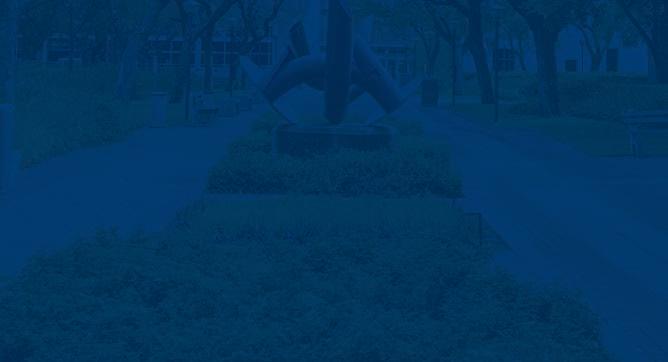



UP is ranked highly in world rankings for the sustainable solutions it offers to our continent.
#8 for SDG 1
No poverty*
#8 for SDG 8
Decent Work and Economic Growth*



#42 for overall impact
Out of 2 152 universities ranked worldwide*


#65 for SDG 17
Partnership for the Goals – indicating UP’s international collaboration to achieve the United Nations Sustainable Development Goals*
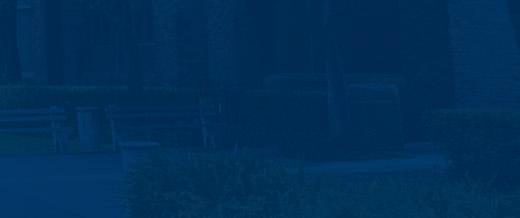

*Source: 2024 Times Higher Education (THE) Impact Rankings

26th in the world









The University’s Gordon Institute of Business Science (GIBS) continues to be ranked among the world’s top 50 business schools
Source: UK Financial Times Executive Education Rankings (open enrolment programmes)
#65 in the world
UP’s Law programme is a top-ranked Law faculty in Africa and South Africa
Source: 2024 Times Higher Education (THE) Subject Rankings
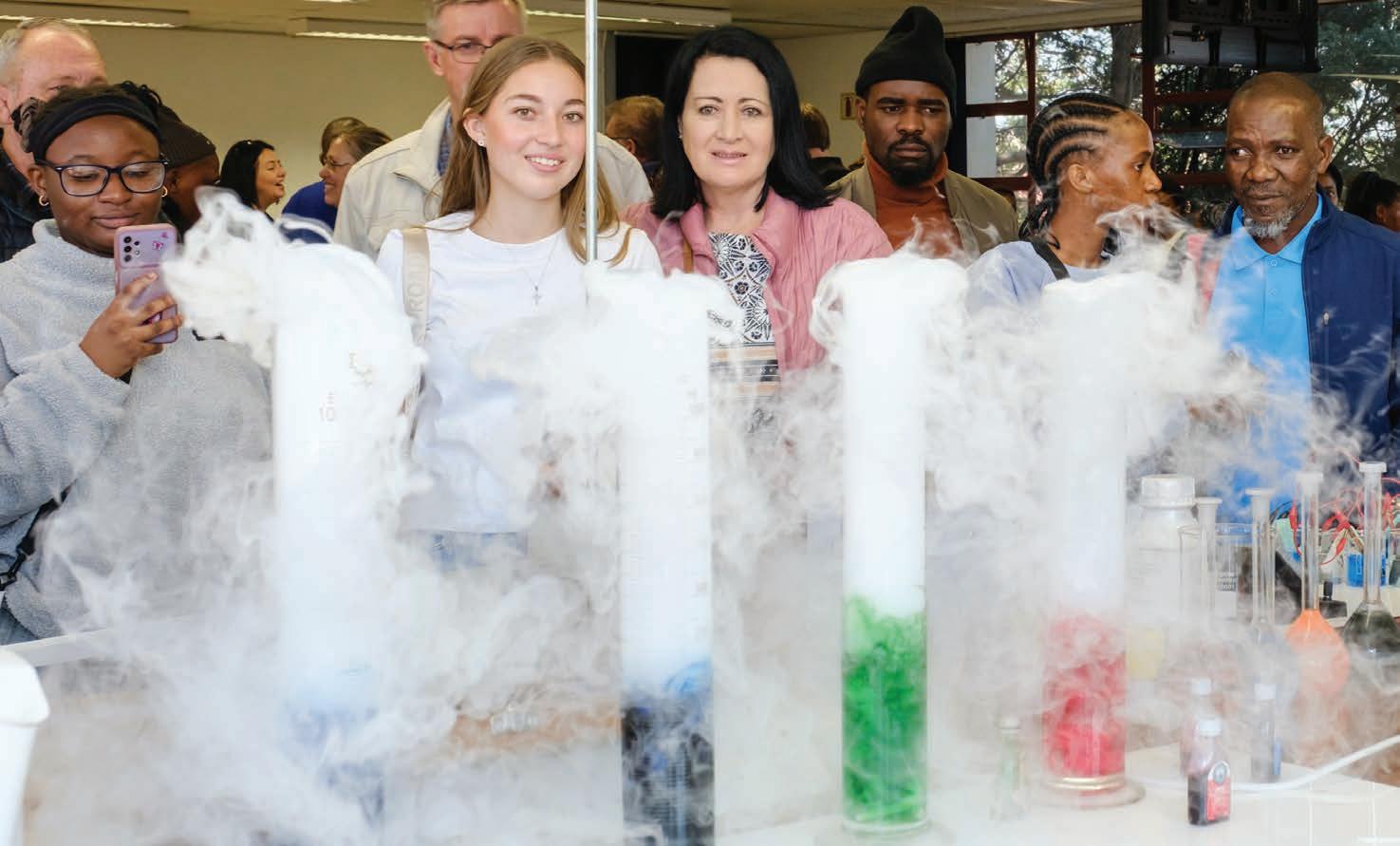
As the educational landscape evolves, the University of Pretoria (UP) is exploring new models of teaching and learning. Through our Digital Transformation Strategy we are creating a culture of innovation that will improve teaching and learning by integrating emerging technologies such as artificial intelligence (AI), augmented reality, and online simulations.
This was evident in 2024 which saw experiential learning methods such as gamification in tax education, and AI technologies in medical education assessment. Another area of focus was implementing culturally responsive teaching practices that contributed to a more inclusive and holistic learning environment for students.
We intend for no one to be left behind in a future shaped by the Fourth Industrial Revolution.
The University’s hybrid teaching and learning model equips students not only for academic success but also for the modern workforce. The model, called TEACH The UP Way, offers students the best of both worlds – online and contact learning – and encourages students to take control of their learning while also developing digital fluency.
TEACH The UP Way is a technology-enabled, flipped learning approach that encourages students to prepare independently for each class, allowing them to engage with, and critically discuss issues during class time. Through Blackboard Learn™ (branded as clickUP) students come to class prepared, complete pre-class assessments, engage in class, and consolidate their knowledge after class. The roll-out of the new clickUP Ultra has enhanced this educational experience through data-driven learning analytics to keep students engaged and on track for success.

Data analytics also help identify at-risk students at an early stage. By drawing on a wide range of information sources, lecturers can tailor their teaching approaches to meet the specific needs of their students. Learning analytics allow lecturers to identify students who need additional support early in their academic journey, enabling timely interventions via tutoring and advising services.
Students can track their progress through an automated process, or be notified, for example, if their activity or grade decreases compared to that of their peers. This encourages students to assume agency for learning – a central message in the FLY@UP campaign, which uses various tools and tactics to help students graduate in minimum time.
In 2024, our comprehensive tutoring programme was expanded to include 24/7 AI tutoring support alongside traditional tutoring services, making it a more accessible resource for students. To better monitor student participation and improve the effectiveness of tutoring, the University implemented a QR code-based attendance tracking system. As a key component of teaching and learning, tutoring provides structured academic support, deepening student understanding.
Attention given to the HIMs (High Impact Modules) project in 2024 also paid off. The objective is to improve the success rates of modules with lower pass rates by identifying critical areas that require support and focusing resources on these specific modules. The pass rate for these modules across faculties showed significant improvements with several notable success stories for example, the Faculty of Law improved all six of their HIMS by 28-30%.
We believe that such interventions have played a significant role in our improved pass rates. In 2024, the overall module pass rate for UP increased to 90.00% (2023: 88.20%), with the examination pass rate at 88.00% (2023: 87.40%).
By using Anthology Ally, UP makes digital content more accessible to a diverse range of students, especially those with learning disabilities or those for whom English is a second language. The software also leverages machine learning to translate English documents into 25 languages, including isiXhosa, catering to diverse linguistic needs. The Department of African Languages at UP contributed to this initiative by helping to translate documents into isiZulu, further enhancing the accessibility and inclusivity of the learning experience.
*isiZulu for “learning well”.
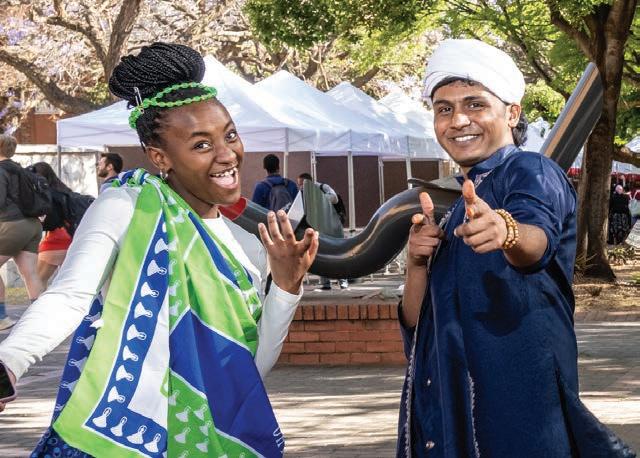
To excel in today’s world of work, students need more than digital skills. They must develop a range of essential skills, including adaptability, ethics, critical thinking, problem-solving, teamwork, collaboration, effective communication, and self-directed learning, with a particular focus on intercultural awareness. Achieving these outcomes requires both highquality teaching and relevant curricula that align with the evolving needs of the modern workforce.
Ways in which we are preparing our students for a new way of learning –and working – are by enhancing transdisciplinary teaching and learning. Guidelines from a dedicated Transdisciplinary Task Team aim to break down traditional academic silos, encourage collaboration across disciplines, and equip students with the skills necessary to address realworld challenges. This cross-disciplinary collaboration, which integrates theoretical knowledge with practical application, further equips students with the skills necessary to navigate and solve the complex challenges of the future.
Ongoing commitment to maintain our standard of teaching has seen the academic staff-to-student ratio steadily improving and in 2024, this stood at 22.3 students per teacher. A lower academic staff-to-student ratio enables more personalised attention and support for students, contributing to a more enriching educational experience.
Our commitment to ensuring that disadvantaged individuals and those from underprivileged communities can access higher education is reflected in our student profile. The proportion of black students has steadily increased over the years and in 2024, this stood at close on 70% (68.68%).
One of the ways in which we support equitable access to higher education is by ensuring that learners from under-resourced communities have access to academic resources that enhance their readiness for university study.
A key component of this initiative is JuniorTukkie Online, a digital platform that offers learners across South Africa access to free study and subject support, including 85 GB of data for academic use. Of the 17 690 registered users, approximately 11 500 actively engage with the platform’s content. Most users are from Gauteng (68%), followed by KwaZulu-Natal (12%)
Our e-Education Group in the Department of Education Innovation, won the Anthology Catalyst Award for Training and Professional Development. The award recognised their innovative work in the phased implementation of clickUP Ultra to help lecturers reimagine course designs.
Professor Anculen Schoeman (left) and Mrs Tanya Hill (right), from the Faculty of Economic and Management Sciences, received the 2024 UP Institutional Collaborative-Team Teaching & Learning Excellence Laureate Award for developing an innovative eFiling simulation project for their Taxation students.














































































































































and the Western Cape (10%). Importantly, learners do not need to be prospective UP students to benefit from this support, reinforcing the University’s commitment to broader societal impact in education.
Our flagship programme, Tuks Robot School, offers robotics and coding to motivate learners from township and rural schools and strengthen STEM (science, technology, engineering, and mathematics) literacy. A notable example in 2024 was an AI workshop for learners in Mamelodi. The Pre-University Academy (UP-PUA) – established to bridge the gap between basic and higher education – once again partnered with Hong Kong Polytechnic University (HKPU) to deliver an AI pose recognition workshop to 99 local learners.
We are proud of this digital leadership in education which seeks not only to stimulate enquiring young minds, but to prepare them for tertiary education and the future world of work.
As a university we are proud to be developing the human capital essential to advance South Africa and the African continent. Our graduate outputs are testimony to this ability and we noticed a pleasing upward trend in the number of students graduating: from 14 323 in 2023 to 14 990 in 2024.
Our own TuksSport High School upheld a proud tradition by achieving a 100% matric pass rate – marking the 18th such achievement in 21 years. Of the 48 learners, 83% obtained a bachelor’s pass.



























































































































In 2024, UP’s JuniorTukkie programme celebrated its 20th anniversary with a vibrant campus activation that showcased the profound and lasting impact it has made over two decades. Established in 2004, JuniorTukkie continues to provide academic enrichment, career guidance, and leadership development to high school learners and university students.



































































































































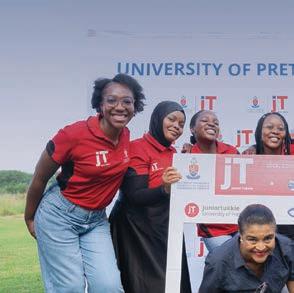













Two exceptional graduates merit special recognition for their resilience in overcoming significant personal challenges. Celeste Fourie was diagnosed with a brain tumour in 2022 while pursuing a master’s degree in meteorology. Remaining focused on her studies throughout treatment and recovery was immensely difficult, but her academic aspirations served as a powerful source of motivation. Samuel Imevbore, who graduated with a Bachelor of Medicine and Surgery (MBChB) degree, was diagnosed with sickle cell anaemia at the age of 14. Having endured numerous complications related to the condition, he was immensely proud to be graduating alongside his peers. He noted that experiencing the patient’s journey first-hand has shaped him into a more empathetic and compassionate doctor.



















































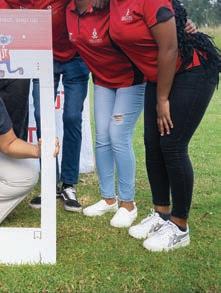




We also produce graduates who are socially conscious and active citizens who address societal challenges and positively impact their communities. A select number of students who exceeded expectations are recognised below.
Emily MacGregor: As a final-year medical student in the Faculty of Health Sciences, Emily was awarded the Alliance of the South African Independent Practitioners Association’s Young Doctors Merit Award. This honour is bestowed upon exceptional medical students who demonstrate academic excellence, leadership, and meaningful community engagement. In 2022, she founded ReachUP, a student-led initiative offering free academic lectures, practical workshops and community outreach activities.

Hilda Dinah Kyomuhimbo: Hilda, a PhD student in the Department of Chemical Engineering, was awarded the prestigious Schlumberger Foundation Faculty for the Future fellowship. This international award supports women from developing and emerging economies to pursue doctoral or postdoctoral research in STEM at globally recognised institutions. Awardees are also selected for their role in encouraging women and girls to enter STEM fields.
Ruth Kasavo: Also a PhD student in the Department of Chemical Engineering, Ruth received the Excellence in Africa “100 PhDs for Africa” fellowship, awarded by the Swiss Federal Institute of Technology (EPFL). Her research is co-supervised by Prof Hendrik Brink, a specialist in environmental engineering at UP, and Prof Francesco Stellacci, an EPFL expert in nanomaterials. The fellowship fosters academic collaboration between African scholars and EPFL researchers, contributing to sustainable knowledge development on the continent.
For the second consecutive year, UP achieved a 100% pass rate in the South African Institute of Chartered Accountants (SAICA) Initial Test of Competence (ITC). UP alumnus Gareth Griffiths (front far right in photograph) was the top-ranked candidate nationally. Notably, four of the top five positions in the 2024 ITC were secured by UP graduates. Of the 24 candidates nationwide, who attained a score of 75% or above, nine were from UP.
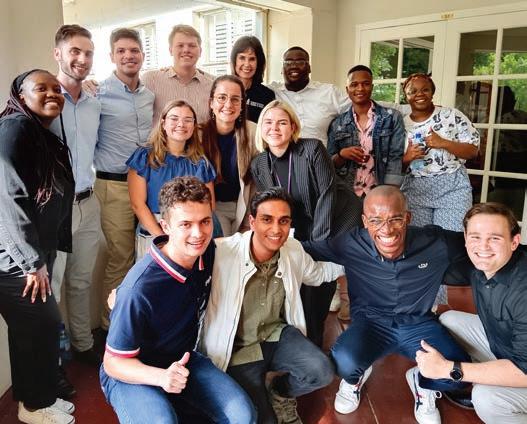

We regard a successful graduate as one who is also an employable graduate. Through strategic initiatives, innovative programming, and collaborative partnerships, we have positioned UP as a leader in career development and work readiness. We are proud to be building Africa’s future workforce through a range of tools and skills.
In 2024, our Ready for Work programme underwent a significant refresh. This upgrade introduced shorter, more accessible quizzes and user-friendly videos and articles, leading to a remarkable 27% increase in enrolments. By year-end, the programme had enrolled 8 065 participants – well above the target of 6 000. Available via clickUP, the University’s learning management system, the programme equips students with practical knowledge and skills to navigate the modern workplace confidently.
In addition to this flagship offering, students have access to an Entrepreneurship programme, a free online course that teaches them how to use their knowledge, skills, and talents to launch their own ventures. This makes them job creators rather than job seekers.
The Career Services Office (CSO) received two prestigious awards from the South African Graduate Employers Association (SAGEA) in 2024: Best Career Services and Best Work Readiness Programme. These accolades underscore UP’s excellence in graduate recruitment, skills development, and strategic career guidance.
In 2024, the CSO launched the Final-Year Mentorship Programme, designed to connect final-year students (mentees) with industry professionals (mentors) for a structured experience lasting six to nine months. A total of 2 994 mentees enrolled, supported by a database of 917 mentors. Mentees benefited from career guidance, industry webinars, LinkedIn Learning resources and personalised mentorship. Completion of the Ready for Work programme was a prerequisite for participation.
The Centre for the Future of Work (CFoW) at UP continued to play a critical role in preparing Africa’s youth for meaningful economic participation. In 2024, the CFoW launched a dedicated website to promote collaboration with external partners, reinforcing the importance of accessible, socially and economically relevant education.
UP’s commitment to producing workplaceready graduates received global recognition. In the 2025 QS World University Rankings, the University was ranked 185th worldwide for the Employer Reputation indicator – affirming that UP graduates are valued by employers for their readiness to contribute meaningfully from the outset of their careers.



A vibrant student experience encompasses more than academic success, and we encourage and support our students to excel beyond the classroom as well.

The UP Ovuwa Cultural Ensemble won a South African Traditional Music Achievement (SATMA) Award in the category of Best Traditional Group from an Institution of Higher Learning This national recognition marked a significant milestone for the ensemble and highlighted its dedication to preserving and promoting African indigenous musical art forms.
Tuks FM, our campus radio station, had a stellar year, winning seven South African Radio Awards and three international awards in the International Students Broadcasting Championship, where it competed with countries including the US, the UK, Australia, and the Philippines. With 29 nominations at the SA Radio Awards, Tuks FM became both the most-nominated campus station and the most-nominated radio station in the country overall.
A beloved annual tradition, the Principal’s Concert, once again captivated audiences during two sold-out evenings presented on the Hatfield Campus. This signature event showcased the extraordinary synergy between the UP Symphony Orchestra, UP Ovuwa Cultural Ensemble, UP Chorale, UP Camerata, and a selection of soloists and pianists.
Hosted under the theme ‘Make Today Matter: The Light We Cast’, the concert masterfully wove together music, dramatic arts, and visual storytelling in three compelling segments, leading the audience on a journey from darkness to light. The performances highlighted critical global issues, including conflict, climate change, and mental health.

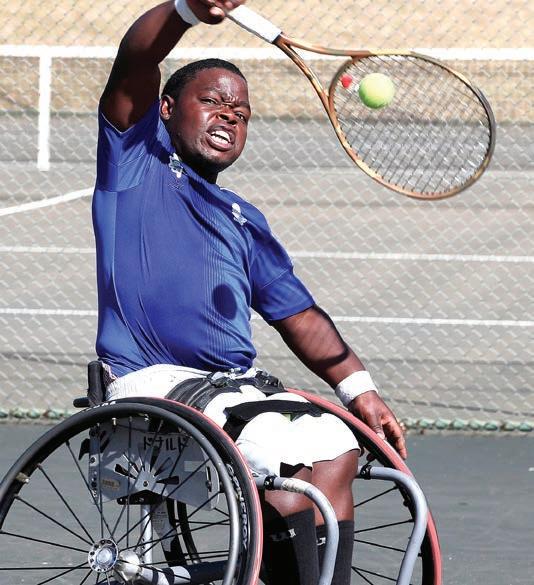
At the Paris 2024 Olympic Games, three of South Africa’s six Olympic medals were earned by UP-trained athletes: swimmer Tatjana Smith (gold and silver) and sprinter Akani Simbine (silver).
UP, through TuksSport and its affiliated entities – the High-Performance Centre (hpc), TuksSport High School, and the Sport, Exercise Medicine and Lifestyle Institute (SEMLI) – continues to be recognised locally and globally for excellence in sport participation and performance. Our commitment to high-performance coaching and holistic athlete development remains at the core of this success.
Donald Ramphadi (left), a Paralympic medallist and wheelchair tennis champion, was named TuksSport BestMed Sportsman of the Year, while swimmer and Olympic medallist Tatjana Smith (below) earned the title of Sportswoman of the Year for the second consecutive year.
At the Paris 2024 Paralympic Games, Donald Ramphadi and Lucas Sithole made history by winning bronze in the men’s tennis quad doubles, marking the first time African wheelchair tennis players have medalled at the Games.



Back home, Tuks athletes delivered outstanding performances in the 2024 University Sports South Africa (USSA) Championships. UP won the title of overall winner, with major successes in athletics and swimming. Medical student Charné Swart (left) was undoubtedly one of the heroes in the USSA Athletics Championships. For the third consecutive year, she won the 800 m and 1 500 m events.










100%
Pass rate in the 2024 SA Institute of Chartered Accountants ITC
4/5 top students
Four of the top five positions in the 2024 ITC were secured by UP graduates
22.3
Academic staff to student ratio for personalised attention




The University offers a number of support initiatives to ensure students graduate successfully in time:
• UP Readiness Survey assesses new first-year students’ preparedness for university.
• The Academic Orientation Programme provides comprehensive support to encourage the success of first-year students.
• Academic Success Coaches advise and refer students for the support or intervention they may require.
• Online learning platforms ensure that students can attend a tutorial from wherever they are, or log in to work through the recorded tutorial.
• The High Impact Modules project improves the module success rate of modules that indicate a pass rate of below 70%, by providing targeted interventions.


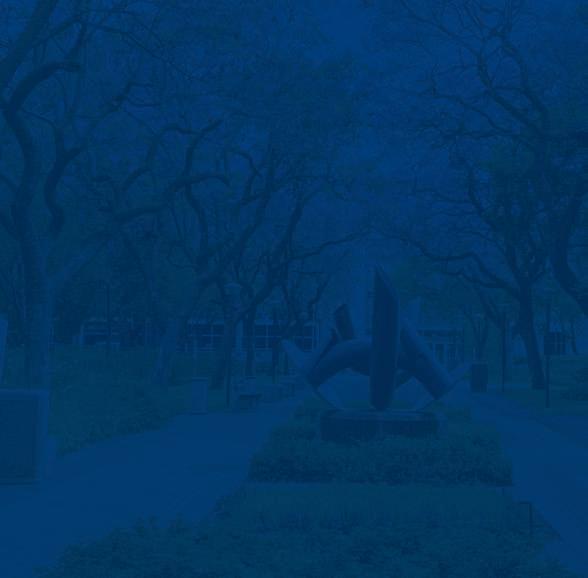




The South African Graduate Employers Association (SAGEA) rated UP’s Career Services and Work Readiness Programme as the best.
UP ranked highly for producing graduates who understand the world of work and can make a valuable contribution immediately.
Source: 2025 QS World University Rankings




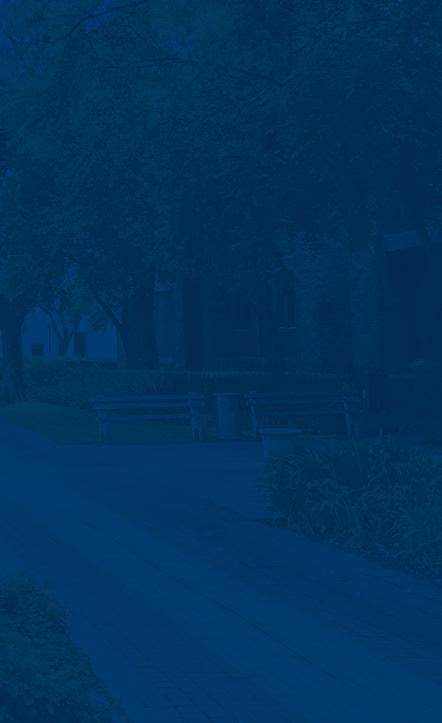
UP is the best place to study seven subjects according to the 2024 Quacquarelli Symonds Subject Rankings:
• Accounting & Finance
• Economics & Econometrics
• Engineering and Technology
• Law
• Mathematics
• Mechanical Engineering
• Veterinary Sciences
Since the 2012 Olympic Games in London, TuksSport’s athletes have won a total of 22 medals, making up half of Team South Africa’s haul.

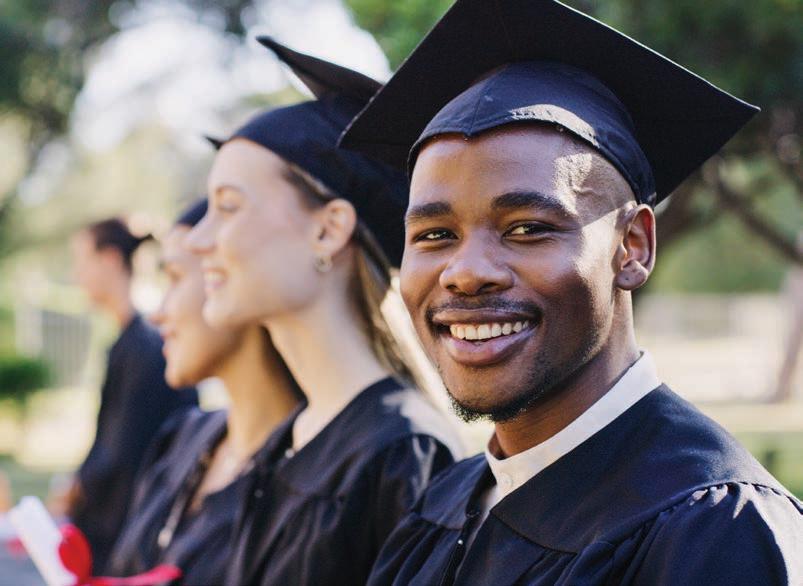










As one of the largest producers of research in South Africa, we are committed to advancing knowledge that matters –knowledge that transforms societies, drives innovation, and positions Africa as a central contributor in the global academic landscape. We are not only part of the international conversation – we help shape it.

In a world increasingly interlinked in the digital age, we are able to forge relationships across the globe and across disciplines. This is essential, because the challenges that the world faces rarely exist in silos.




Equally impactful is the Clusters of Research Excellence in Sustainable Food Systems (CoRE-SFS) initiative, launched under the African Research Universities Alliance (ARUA) at UP’s Future Africa platform. CoRE-SFS brings together top researchers from 120 institutions across 42 countries, and aims to address Africa’s food security challenges through longterm scientific collaboration between African and European institutions.
Contributing to the development and well-being of people and societies is a central pillar of UP’s mission and a commitment that informs our work across multiple levels of engagement. Two significant collaborations in 2024 will achieve meaningful societal impact.
The launch of the Nuclear Medicine Research Infrastructure (NuMeRI) facility marked a major milestone in public health innovation. A world-first in the field of nuclear medicine for cancer and tuberculosis (TB) drug development and clinical research, NuMeRI was established in partnership with the Ministry of Higher Education, Science and Innovation, along with other institutional collaborators. This state-of-the-art facility will provide advanced diagnostic tools and treatments for some of the most pressing public health challenges.

Such developments will further enhance UP’s impact, which was recognised in the Times Higher Education (THE) Impact Rankings 2024 when UP entered the global top 50 for the first time at No. 42. Nationally and continentally, UP was ranked No. 1 for SDGs 2 and 15, reflecting our strong impact on food security and life on land. These results highlight growing global recognition for UP’s contributions to sustainable development.
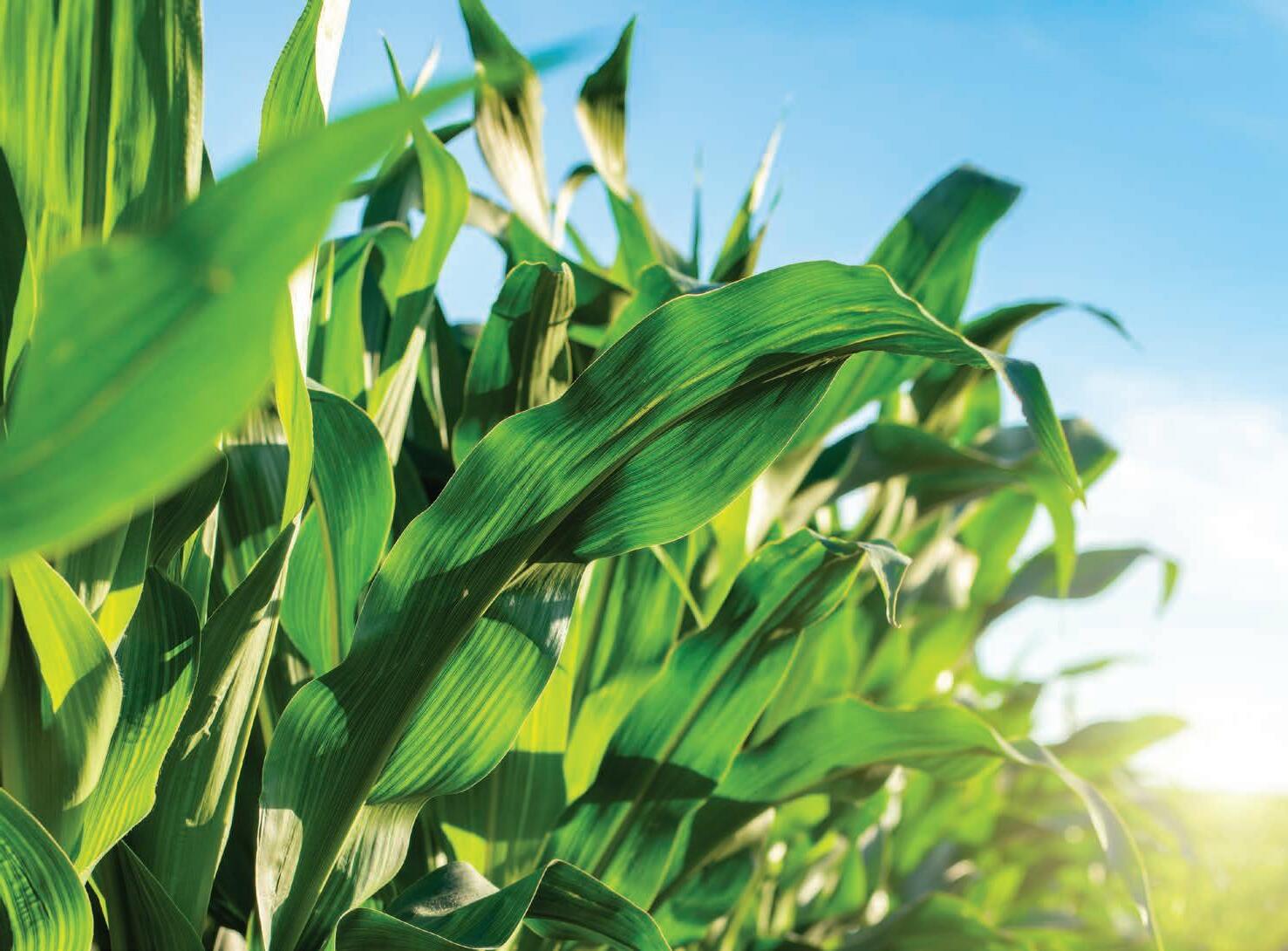

We recognise that only by forming partnerships with multiple stakeholders and networks can we find innovative solutions, to complex local and global challenges. In 2024 our researchers continued to lead collaborative teams that produced groundbreaking research. Key highlights included the following:
Giant Radio Galaxies: Astrophysicist, Dr Gourab Giri, led an international team of astronomers that provided deeper insight into the entire life cycle of giant radio galaxies. The findings, published in Astronomy & Astrophysics, explain how extragalactic cosmic fountains – jets of superheated gas that are ejected into near-empty space from their spinning supermassive black holes – expand to cover such immense distances. This challenges existing theoretical models and raises new questions about the underlying mechanisms of these vast cosmic structures.



Resilient food systems: UP was named a co-lead of the newly formed African-German Centre for Sustainable and Resilient Food Systems and Applied Agricultural and Food Data Science (UKUDLA). Funded by the German Academic Exchange Service (DAAD) and German government ministries to the tune of €6.5 million (R124 million) over the first five years, UKUDLA aims to bridge academic research with practical implementation to address pressing food security challenges in Africa.
Precision Agriculture: In a first for precision agriculture, UP researchers collaborated with the Council for Scientific and Industrial Research (CSIR), using images from the Copernicus Sentinel-2 satellite to produce maps of smallholder farms in Gauteng that highlight maize plants in green and weeds in red. The maps were shared with farmers to enable them to pinpoint and eradicate weeds with greater precision.

Indian Ocean Humpback Dolphin Conservation Network: Dr Shanan Atkins, a postdoctoral researcher at the UP Mammal Research Institute (MRI) Whale Unit, is coordinating the Indian Ocean Humpback Dolphin Conservation Network (HuDoNet), a network of 77 scientists and conservationists from 17 countries along the western Indian Ocean and Arabian Seas. HuDoNet is playing a leading role in galvanising conservation action for the increasingly vulnerable Indian Ocean humpback dolphin.
Long-term Whale Census: By comparing aerial images taken in 1988 and 1999 with those in 2019 and 2021, researchers from the MRI Whale Unit were able to calculate the southern right whales’ body conditions. They found that breeding females visiting Cape Town and surrounding shores for their annual calving migration have dropped 23% of their body weight since the 1980s, according to a paper published in Scientific Reports. They are also giving birth less frequently, dropping from every three years to every four to five years.
Immobilised rhino: Researchers from the Faculty of Veterinary Science demonstrated that pulse oximeters, originally designed for humans, can effectively monitor the blood oxygen levels of rhinoceroses under anaesthesia and can immobilise them by attaching them to an unconventional site: the rhino’s “third eyelid”.




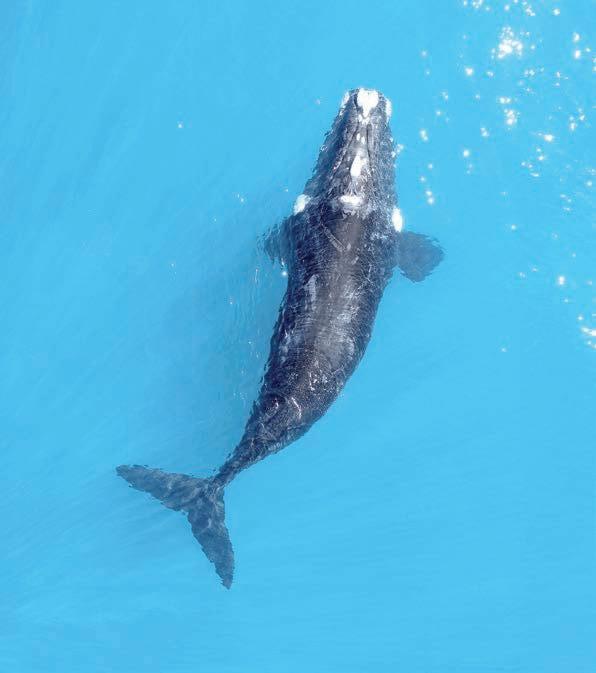




Our researchers’ contributions have earned UP a place among the top 1% globally in 14 out of the 22 Essential Science Indicator (ESI) fields. These include fields such as Economics and Business, Microbiology, and Plant and Animal Sciences, where UP consistently produces the highest number of publications in South Africa.
Four researchers are ranked in the top 1% worldwide by Essential Science Indicator (ESI).
• Professor Mike J Wingfield in Plant and Animal Sciences (UP);
• Professor Yves Van der Peer in Plant and Animal Sciences (Ghent University, Belgium, with a secondary affiliation with UP);
• Professor Pedro Crous in Plant and Animal Sciences (Westerdijk Fungal Biodiversity Institute, Netherlands, with a secondary affiliation with UP); and
• Professor Ussif Rashid Sumaila (University of British Columbia, with a secondary affiliation with UP).

In 2024, UP received recognition for its focus on international and transdisciplinary cooperation, particularly in research. According to the 2025 QS World University Rankings, UP is ranked 24th globally for its international research networks. This recognition reinforces UP’s role as a leading institution driving knowledge creation and innovation on a global scale.
A good example is our membership of the Worldwide Universities Network (WUN), a global higher education and research network comprising 24 leading research comprehensive universities across six continents. UP has been a member since 2021 and was the first African partner to host the WUN AGM in May 2024 (photograph above). The AGM was hosted in partnership with ARUA, and discussions centred on the unique research challenges faced by Africa and the contributions that African research can make to global understanding.
The South Africa-Sweden University Forum (SASUF) is a strategic internationalisation project between Sweden and South Africa. UP partnered with various Swedish universities on research, thus broadening the knowledge approach to problems. SASUF proved to be a successful partnership model, and brought about increased co-authored publications, research mobility and collaborations in various academic activities. UP also participated in the 2024 SASUF Research and Innovation Week held in Sweden.
Furthermore, UP actively participates in networks such as the Michigan State University-led Africa Alliance Partnership, AfricaUniNet, Southern Africa-Nordic Research Network, Australia-Africa Universities Network, and Association of African Universities, among others.
We are heartened by the ever-increasing number of international students joining us at UP. With 4 233 students representing over 100 nations, we welcome the diversity of thought these students bring to South Africa. We are especially proud of the fact that the majority of these students are postgraduate students who will produce research that matters on a globally relevant scale. International academic staff numbers have also increased to 421 in 2024 (2023: 417), further enhancing global thinking.

In the past five years, UP has put its knowledge to work with pleasing growth in intellectual property activity. There have been 64 new invention disclosures, with 48 South African patents and 92 international patents filed. Four new start-up businesses have been formed.
In 2024, the University concluded two licence agreements: one with the company Lichen for a mushroom casing invention, and another with VeriFi Solutions (Pty) Ltd for the blockchain-based system designed to digitally track and verify various educational documentation.
Additionally, UP assigned intellectual property (IP) to its spin-out company, hearScreen. The innovation that led to the establishment of the company in 2016 was developed as a solution to provide access to hearing screening tests for children and adults in underserved areas, who previously had no access to these services.
To stimulate intellectual property development, the University also helps student entrepreneurs refine their technologies and provides specialised support for start-ups through TuksNovation, a non-profit technology incubator and accelerator.
Postgraduates contribute to high-level skills development and specialised knowledge nationally, and UP experienced notable growth in 2024. Master’s degree enrolments increased from 6 220 to 6 322, reflecting growth of 1.6%. Doctoral enrolments rose from 2 555 to 2 610, marking a 2.2% increase.
We also saw strong growth in postdoctoral fellows – from 325 in 2023 to 402 in 2024 – with international postdoctoral fellows comprising 63% of that number. Postdoctoral fellows play an important role in various research activities and contribute significantly to the University’s standing as a global, leading research-intensive university.

Two new chairs were approved in 2024:

• The SARChI Chair for research into Nano-Materials for Energy storage and Water purification applications.



• The industry-funded Chair in Municipal Finance in Africa, created in the African Tax Institute.







UP researchers had another exceptional year, with several academic staff members receiving prestigious awards:


























































































































































Professor Brenda Wingfield, from the Faculty of Natural and Agricultural Sciences and a founding member of FABI, received the International Union of Forest Research Organizations (IUFRO) Scientific Achievement Award for her pioneering contributions to applied biotechnology in the forestry industry. Her groundbreaking work in using molecular techniques for the early and accurate detection of tree diseases has enabled more effective pathogen control measures. She has mentored over 100 postgraduate students and collaborated with global researchers.


































































Professor Mike Wingfield, a founding member of FABI, was awarded Honorary Membership by IUFRO, the highest honour, in recognition of his leadership and service to the organisation. He served in several key roles, including as IUFRO President (2014-2019), making history as the first African to hold this position.


























































Professor Patricia Forbes, Rand Water Research Chair, was elected as National Representative of the Analytical Chemistry division of the International Union of Pure and Applied Chemistry. She is part of a project team assessing the state of analytical chemistry education globally, bringing her expertise to an international platform.




























Professor Hettie C Schönfeldt, from the Department of Animal Science, was appointed to the HighLevel Panel of Experts on Food Security and Nutrition by the Committee on World Food Security. She is the only South African appointee and brings invaluable insight from her work in nutrition and food security. She also holds a Tier 1 DSI/NRF Research Chair in Nutrition and Food Security.






















Professor Mahlatse Kgokolo, Head of Dermatology in the Faculty of Health Sciences, received the Scientific Excellence Award at the South African Health Excellence Awards for her pioneering research on xeroderma pigmentosum (XP), a rare genetic disorder, which has earned her international recognition.












These scholars, alongside many others at UP, are not only making significant contributions to their fields but, are also helping to elevate the University’s reputation on the global stage.

The University’s external research funding declined in 2024, decreasing by R49.6 million. This decline was primarily due to reductions in funding from the private sector and international grants.
The European Union (EU) remains a key source of funding for global research, and UP has been an active participant in the EU’s flagship research funding programme, Horizon Europe, which launched in June 2021. This programme focuses on establishing international consortia of researchers working together globally across various fields to solve complex international problems. In 2024, ten new EU projects were approved, including projects under the Horizon Europe programme, the Capacity-building in Higher Education and Jean Monnet programmes of the European Education and Culture Executive Agency (EACEA), and the Biodiversa+ programme, which is the European Biodiversity Partnership supporting excellent research on biodiversity. UP is a partner in all of these projects.
In addition to these programmes, UP is also an active participant in the Intra-Africa Mobility Scheme of the EACEA, the ERA-NET Co-fund on Food Systems and Climate, M-ERA.NET funding for materials science and engineering, and LEAP-RE, a Long-term Joint Research and Innovation Partnership on Renewable Energy between the EU and the African Union. These projects are typically international consortia and most are funded by the national funding bodies of the respective participating countries.
In 2024, the University also allocated additional funds from its internal funds for research equipment and infrastructure upgrades and maintenance, both important for providing an enabling research environment for academic researchers and students.
Our EU-funded projects address pertinent local and global issues. Some examples in which UP researchers are participating include:
Atacama Large Aperture Sub-Millimetre Telescope (AtLAST2): This project addresses two key gaps in Europe’s major astronomy projects planned for the 2030s: no advanced telescope will cover the crucial (sub-)millimetre range, and most observatories aren’t designed with sustainability in mind. The proposed AtLAST, a 50-meter telescope, aims to close both gaps. It will explore the sub-millimetre spectrum and run on sustainable, off-grid energy. Backed by a global team of 200 researchers, AtLAST will position Europe at the forefront of both astronomy and eco-friendly science.
Fair Food and Trade Systems for Africa through Food Convergence Innovation (FCI4Africa): The FCI4Africa project helps small farmers and businesses meet trade standards through a digital platform, while promoting food safety, economic growth, and human rights. By assessing certifications like organic, fair trade, and deforestation-free, and advising policymakers, the project aims to create fairer trade within Africa and with the EU.
Ted-SOEP: Transforming STEM Teacher Education in South Africa: This project supports collaboration between South African and European universities to improve STEM teacher education through self-directed learning, Open Educational Resources, and Open Educational Practices. A key outcome will be an online course with over 140 validated teaching resources and policy recommendations tailored to the South African context.

The 2025 QS World University Rankings rank UP highly for its commitment to advancing global partnerships
in
Rankings based on the 17 United Nations Sustainable Development Goals (SDGs), which are designed to address the most serious and critical global challenges

Source: 2024 Times Higher Education (THE) Impact Rankings
1% of universities globally
Ranked in 14 of the 22 Essential Science Indicator (ESI) fields, with UP researchers producing the most publications within the fields of Economics and Business, Microbiology, and Plant and Animal Science within South Africa.


Number of UP-published papers that were among the top papers in the world



These include Centres of Excellence, Research Chairs, Bureaus, Institutes and Units.





Number of active research chairs
24 Industry-funded research chairs
22 SARChI chairs

SARChI = Department of Science and Innovation-National Research Foundation South African Research Chairs Initiative
















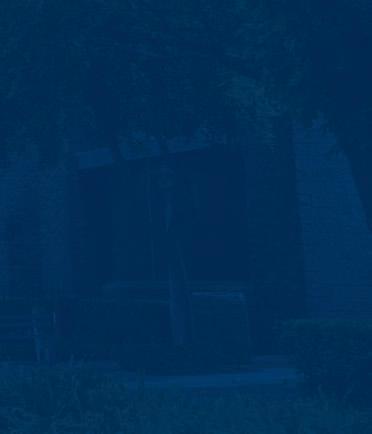








64 New invention disclosures
48 South African patents granted
92 International patents granted
4 New start-up businesses formed
Intellectual property activity, 2020-2024
Source: Department of Research and Innovation

Apart from shaping the minds that will steer the future, through our teaching and learning, we work with various role-players to shape innovative solutions to complex global and local challenges. These collaborations are essential in advancing knowledge creation, technological innovation, and the exchange of expertise, all of which align with our mission to be a globally engaged institution.
Our vision is rooted in membership of, among others, the International Association of Universities (IAU), a United Nationsendorsed body that connects about 600 member institutions from more than 130 countries. We all share the goal of enhancing the higher education community’s role and actions in advancing societies worldwide.
The partnerships we pursue reflect both global relevance and local responsiveness. These include:
• University-to-university collaborations that build dynamic consortia with peer institutions across Africa and around the world, and that are grounded in joint leadership, shared learning and mutual benefit.
• University-to-society engagement through partnerships with communities, NGOs and local governments, ensuring our research has real-world impact that uplifts people’s lives.
• University-to-industry connections that equip our students with the skills demanded by the Fourth Industrial Revolution, and that position us at the forefront of innovation, entrepreneurship and the future of work.
International collaboration is a core focus, and UP collaborates with over 3 000 institutions across the globe. Strategic partnerships, international student enrolment, international mobility, collaborative qualifications, and international copublications are all ways in which we intentionally revitalise collective partnerships and establish new ones.
Since 2019, UP researchers have co-authored 24 595 publications with institutions across six regions. The majority of these publications were co-authored with researchers from Africa and Europe.
In 2024, we had a total of 107 active institutional-level agreements and 97 active faculty-level agreements, further strengthening our global presence and fostering academic cooperation. In addition, we formalised 46 new international agreements, enhancing collaborative efforts across various fields of research, education, and innovation.
Below are some key partnerships that exemplify the impact of these agreements.
• Zhejiang University, China: This partnership, spanning four years, is aimed at creating innovative engineering solutions with far-reaching societal benefits.
• Wuhan Polytechnic University and Hubei University of Technology, China: These partnerships focus on electrical and electronic engineering and further strengthen global academic ties.
• Polytechnic Institute of Bordeaux, France: This agreement facilitates student exchanges and collaborative research initiatives, offering new opportunities for cultural and academic enrichment.
• MTC Dome, Namibia: This partnership drives innovations in neuroscience, with MTC Dome’s focus on high-performance training and elite athlete support, complimenting UP’s academic research.
• Deutsche Gesellschaft für Internationale Zusammenarbeit, Germany: This initiative, part of the Sustainable Development Goals Initiative, seeks to bridge the gap between academic research and policy transformation in South Africa.



In a significant collaboration with the University of Cape Town (UCT), UP appointed Professor Maano Ramutsindela as the UP-UCT Future Africa Research Chair in Sustainability Transformations. Housed at UP’s Future Africa, this Chair is dedicated to addressing global sustainability challenges through transformative African research.























At the local level, UP continued to cultivate impactful partnerships that address pressing issues within South Africa and the broader Southern African Development Community (SADC). Notable local collaborations during 2024 included:
• End Malaria Partnership: The UP Institute for Sustainable Malaria Control (UP ISMC) partnered with the RBM Partnership to End Malaria, joining regional and international efforts to eliminate malaria in the SADC region. The partnership includes key stakeholders such as the World Health Organization (WHO) and the National Department of Health, and is dedicated to consolidating malaria elimination efforts across the region.
• Family Health International 360: The UP Faculty of Health Sciences and FHI 360 collaboration brings together UP’s academic resources with FHI 360’s expertise in community health and development, aiming to improve healthcare outcomes for communities both locally and globally.
• United Congregational Church of Southern Africa (UCCSA): A partnership with the UCCSA further enhances the Faculty of Theology and Religion’s commitment to promoting collaboration, understanding, and shared goals in theological education and religious practice across southern Africa.
• Pick ’n Pay Collaboration: UP’s Mammal Research Institute (MRI) Whale Unit partnered with retail giant Pick ’n Pay, to create distinctive reusable bags featuring images of southern right whales. These bags raise awareness of the MRI’s research and serve as a fundraising tool for the Unit’s important work in whale conservation.
These strategic partnerships, both global and local, highlight UP’s continued commitment to addressing critical challenges through collaborative research, innovation, and community engagement. By forging these alliances, UP strengthens its position as a leader in higher education and an agent of positive change in both global and local contexts.




The University has a track record of successful collaboration with industry across various domains, with the intention of building a competent workforce and a competitive entrepreneurial community. The 24 research chairs that are funded by industry demonstrate the value it places on the impact and relevance of research programmes at UP. Just two examples of such collaboration are listed below.
• Timber Construction Conference
UP hosted the second annual Timber Construction Conference at the Future Africa Campus in collaboration with York Timbers, with the support of the Pretoria Institute of Architecture and the Department of Trade, Industry and Competition. This gathering brought together experts to discuss innovations in timber construction and explore new ideas in sustainable building practices.
• City of Tshwane’s 2024 Higher Education Innovation Challenge
This initiative encouraged students to collaborate with the city to develop innovative solutions aimed at improving governance. The challenge promoted partnerships between industry and higher education, with a focus on enhancing municipal services, improving safety, and introducing digital platforms to create new revenue opportunities, all while equipping student entrepreneurs with the skills to address service delivery challenges.
The launch of the United Kingdom Friends of the University of Pretoria Foundation in 2024, marked an important milestone in strengthening international collaboration and support for UP’s educational initiatives. Through strategic partnerships and philanthropic efforts, the foundation aims to make a profound impact on the lives of students, faculties, and communities locally and globally.




















In 2024, the University awarded its annual Award for Community Engagement to Dr Nadine Sonnenberg from the Department of Consumer Sciences for her partnership with Clothes To Good. Her students work directly with Clothes To Good staff, community members, and industry partners to address real challenges in textile waste management.























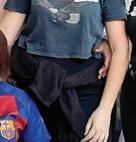



The 2024 UP Senate Conference emphasised the value of curricular community engagement (CCE) as a way to intentionally apply resources and expertise in teaching, learning, and research to achieve mutually beneficial outcomes.
At its heart, CCE is a fundamental component of our teaching and learning. It creates a vital bridge between the University and society, integrating theory, practice and research while fostering citizenship and lifelong learning.
Our commitment to integrating community engagement into the curriculum was demonstrated in 2024, with 226 modules incorporating CCE and 19 967 students actively participating in these learning experiences. Engagement took place across a diverse range of sites, from the Eskom Expo and hospitals to welfare organisations, early childhood development centres, animal shelters, schools, clinics, farms, and nature reserves.
As a two-way knowledge exchange between ourselves and our community partners, CCE ensures shared ownership and commitment to outcomes. As a credit-bearing component of our academic programmes, CCE maintains high standards through clear objectives and rigorous assessment methods, making it sustainable and impactful.
Our students and academics are also exposed to international collaboration through UP’s Global Online Teaching and Learning initiative. This consists of 36 online projects, involving 49 UP lecturers and 91 international lecturers from 30 countries. Over 600 UP students are provided with an international collaboration opportunity across all programmes.
One such project is the Global Classroom for UP political sciences honours students. It has been running since 2018 and is a four-way collaboration between UP, the University of Akron in the US, Fundação Armando Alvares Penteado in Brazil, and Le Mans University in France. Students are able to engage, share, and collaborate online – not necessarily in the same language or from the same point of view.
In 2024, the Community of Practice created for academics involved in global online teaching and learning hosted two key sessions. The first focused on enhancing critical thinking in Arts Education while the second explored the value of collaborative online international learning (COIL) projects in building and sustaining global partnerships.
These contributions demonstrate UP’s commitment to advancing global collaboration and innovation in teaching and learning.
UP experienced another highly productive year in 2024, launching numerous initiatives and hosting distinguished figures from both the political and academic worlds. Just two examples are:
One of the year’s highlights was the Pan-African Universities Summit, hosted in collaboration with Times Higher Education (THE) and Stellenbosch University. The summit, centred around the theme “The Rising Expectation for Academics to Drive Change”, encouraged collaboration and innovation in academia. Around 300 university leaders from 32 countries attended the event.
The 6th Annual Women in Science Symposium, hosted by UP, carried the theme “Women in Science Leadership: A New Era for Sustainability”. The event celebrated the crucial role that women and girls play in science – not only as beneficiaries but as active agents of change in accelerating progress towards achieving the SDGs.
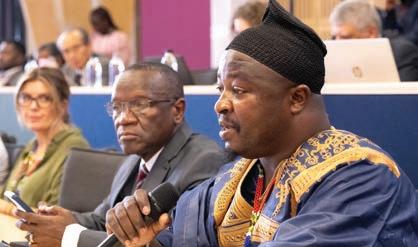

We celebrated the achievements of 19 UP-affiliated individuals who made it onto the Mail & Guardian’s 200 Young South Africans list. UP alumni accounted for approximately 9.5% of the total honourees. Since the inception of these awards, over 210 UP staff members, students, and alumni have been recognised for their efforts to create meaningful change in society.
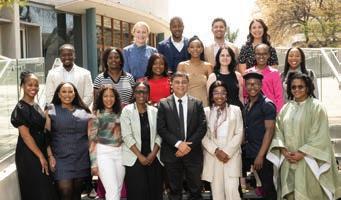
Professor Sylvester Mpandeli received the World Heritage Irrigation Structures Award in recognition of the Douglas Weir irrigation system in the Northern Cape. This was the first time South Africa had won this international award. Prof Mpandeli holds a master’s in Irrigation and Agronomy from UP and is considered to be among the top three authors on the issue of the water-energy-food nexus.

Keanan van Dyk has joined the Oracle Red Bull Racing F1’s Aerodynamics Development team. Van Dyk obtained his Bachelor of Engineering (Mechanical) degree from UP in 2022 and credits his UP studies for creating a strong basis of practical and theoretical knowledge. He followed his UP studies with a master’s degree in Aerospace Engineering from the University of Stuttgart in Germany.









3

4







19
As a university, we acknowledge our responsibility to contribute to inclusive societal development by addressing the triple challenges of poverty, inequality, and unemployment. Our work towards sustainable development encompasses both how we conduct ourselves as a responsible institution and our role as an agent of societal transformation.
We consider our performance in global rankings as one of the measures of our success. The QS Sustainability Rankings assess how universities are addressing global environmental, social, and governance challenges. In the 2025 rankings, UP was ranked No. 1 in Africa and South Africa for Governance (with a global position of 31). Notably, UP was also ranked in the top 100 globally for Knowledge Exchange (29th) and Environmental Education (73rd).
In 2024, funding from the Department of Higher Education and Training (DHET) enabled significant progress in sustainability initiatives at UP. Through energyefficient infrastructure upgrades, the expansion of renewable energy sources, waste reduction programmes and water conservation measures, we could reinforce our commitment to meeting both national and international sustainability targets. The funding has supported practical, on-campus improvements and facilitated research and innovation projects that extend sustainability benefits beyond the campus.


The principles of sustainable development are embedded within our academic framework, as they work to address the challenges we face as a country and continent, and our aspirations for sustainable futures. The dimensions include:
• understanding the societal context and related challenges;
• broadening student access and enabling graduate success, which contributes to societal human capital development;
• producing African-global citizens who are enquiry-led, work- and future-ready, entrepreneurs, and lifelong learners; and
• creating new knowledge with innovative product development for transformative societal impact.

Inclusivity, innovation, fairness and collaboration are woven into our approach.


Partnerships amplify the impact we seek. In addition to collaborating with individual universities, UP is active in a wide range of regional and international networks. These include the Worldwide Universities Network, the African Research Universities Alliance, and the Association of Commonwealth Universities, among others. The University is also a founding member of the Knowledge Equity Network.
At an institutional level, intentional collaboration continues to strengthen. A Transdisciplinary Task Team is advancing multi-, interand transdisciplinarity in teaching, learning, research and community engagement across the University. The aim is to break down traditional academic silos, foster collaboration across disciplines, and equip students with the skills necessary to address complex realworld challenges.
The UP student demographic profile has steadily changed over past years. In 2024 black students made up 68.68% of the total student group, and the majority (61.72%) were women.
The University exceeded its 2024 target for employment equity and 70.6% of its staff were black. We also encouraged skills development and leadership potential through a few initiatives, such as:
• New Generation of Academics Programme (nGAP): Of the 37 nGAP lecturers, all candidates are from designated groups, with females making up just over 71%.
• Transformational Leadership Programme: The inaugural Transformational Leadership programme – designed to enhance leadership capabilities within the University – had 20 participants, of which 14 were black and 13 were women.
• Management Development Programme (MDP): In 2024, 19 participants successfully completed the programme designed to enhance managerial skills. Of these, 17 were black and 11 were women.
• Internships and learnerships: The University appointed 138 youth interns, offering them valuable hands-on experience and professional development. Additionally, 10 learners with disabilities were enrolled in the Business Administration programme at NQF level 4. Developing skilled professionals for the future, creates a talent pipeline while addressing unemployment.
In 2024, the Disability Unit (DU) in the Department of Student Affairs was renamed the Access, Disability and Inclusion Services (ADIS), reflecting its expanded role in supporting students with disabilities. ADIS provided support to 658 registered students across nine faculties, marking a year-on-year increase of 60 students. ADIS also helped Technical Vocational Education and Training (TVET) colleges establish disability services and worked closely with the Mastercard Foundation to recruit learners with disabilities across member countries. Furthermore, the Unit supported a Psychology master’s student to participate in the Erasmus exchange programme in Lithuania for six months.
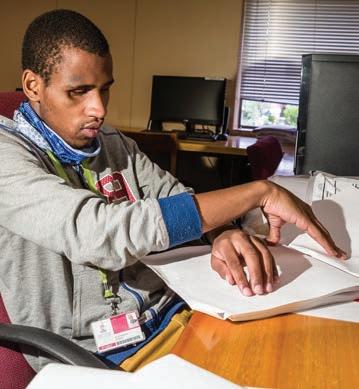

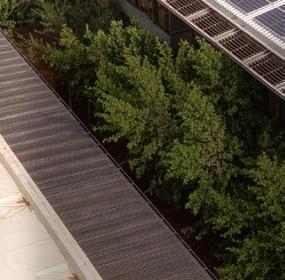


With financial sustainability having been identified as the top risk at UP, the University’s Financial Sustainability Plan serves as a road map to navigate this challenge. It focuses on maximising operational efficiencies, containing costs, identifying cost replacement strategies and enhancing diverse income streams. It also envisages increasing the number of academic staff to improve the academic staff-to-student ratio.


In 2024, the higher education sector continued to face significant economic challenges, including government subsidies that did not keep pace with rising operating costs, a high staff cost base, and the capping of tuition fee increases by the Minister of Higher Education and Training.


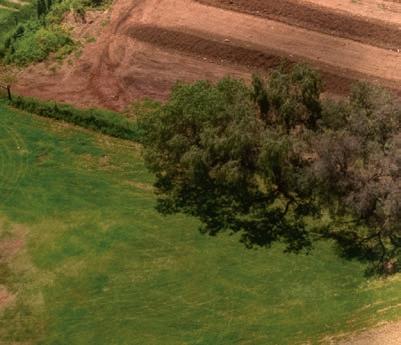
The financial strain was further exacerbated by a substantial increase in outstanding student debt, largely driven by high unemployment, sluggish economic growth and limited access to alternative funding, particularly for the “missing middle” category of students.

Diversifying revenue and funding sources is critical to our survival and the impact we desire to make. Enterprises University of Pretoria (Pty) Ltd, a wholly owned subsidiary of UP, is responsible for developing, implementing, and managing the University’s commercial activities. It also contributes to the growth and success of various external organisations and professionals by offering short courses, commercial research, consulting solutions and analytical services.
Expertise is drawn from the applied disciplines within the University’s nine faculties, as well as the private sector, to deliver customised, innovative and relevant client solutions. Depending on the nature of the required solutions, multidisciplinary teams are often deployed to ensure successful project delivery. Enterprises UP income grew by 12%, resulting in total turnover of R298 million.
We operate across a vast geographic footprint, encompassing seven campuses and related infrastructure. In carrying out our activities, we use energy and water and generate various forms of waste. Our campuses are interspersed within host communities, facilitating two-way interactions between the University and its neighbours.
The reduction in loadshedding events during 2024, saw us purchase more electricity from the national power utility but less diesel for running standby generators. Despite this relief, we continued to install photovoltaic (PV) panels at TuksSport High School (with a capacity of 100kWp at peak sunlight).
The University has two energy efficiency and renewable energy projects (PPA) in the pipeline, which will provide sufficient energy to address the needs of the Hillcrest sport campus, Innovation@Africa campus, residences and Hatfield campus.
In anticipation of changes in regulation related to resource efficiency, we are proactively assessing and certifying the energy performance of qualifying buildings (larger than 1 000 m²), while implementing additional energy-efficient measures. These include conducting energy audits to determine baseline consumption levels, identifying opportunities for energy efficiency improvements, and undertaking necessary upgrades such as optimising lighting systems, upgrading HVAC (heating, ventilation, and air-conditioning) systems and enhancing insulation.
In a related initiative, the Department of Facilities Management has introduced a state-of-the-art Smart Campus automation and reporting system to enhance sustainability efforts and streamline operational efficiency. The system integrates Internet of Things (IoT) sensors, data analytics, and real-time monitoring across campus facilities, allowing for continuous tracking of energy use, water consumption, waste management, and carbon emissions. By centralising data from multiple sources, the system enables data-driven decision-making, helping to identify inefficiencies and optimise resource usage.
The University has been measuring and reporting its carbon footprint since 2017, with reports limited to Scopes 1 and 2 emissions, covering direct emissions and those from purchased electricity. In 2024, we expanded our reporting to include Scope 3 emissions, which account for indirect emissions from activities such as purchased goods, employee commuting and waste generation.
The total emissions recorded for 2024 were 74 868 tCO2e (2023: 85 358 tCO2e).
Various water conservation projects and activities have increased awareness and commitment to protect the resource and optimise its use on our campuses. The design of new buildings and refurbishment of existing ones include systems, such as high-efficiency plumbing systems, to reduce usage and wastage. This is supported by preventative and scheduled maintenance, early leak detection and intervention to prevent water losses.
We reduce large-scale landscape water use through waterefficient irrigation systems, water-wise gardening and by using recovered water sources.
Reclaimed water is safely used, and rainwater is harvested and stored wherever possible. Storage tanks and reservoirs are also used to store borehole water.
The total water consumption for 2024 was 692 060 kℓ compared to the 634 441 kℓ of water purchased from the municipality during 2023. Factors contributing to this increase include expanding campus facilities, increased student and staff populations, and the addition of research and laboratoryintensive programmes, all of which require significant water resources.
All waste generated by residences and housing is diverted from landfill to recycling, composting, and waste-to-energy facilities. This drastically reduces methane emissions resulting from landfill decomposition, a critical component of our Scope 3 emissions.
Our zero-waste strategy minimises the environmental impact and encourages a culture of sustainability among students and staff, who actively participate in waste sorting and reduction practices. Waste management practices across campus include waste sorting stations, educational initiatives for students and staff, and partnerships with eco-friendly disposal vendors.
Our efforts have seen a significant reduction of waste successfully diverted away from the landfill.
As the University enters its next cycle of strategic planning, we anticipate that sustainability will become even more deeply embedded in our institutional culture –reinforcing our role as a leader in higher education and innovation. Through platforms like TuksNovation, and by prioritising sustainability in research, operations, and student support, we are committed to equipping our university community to meet future challenges and drive sustainable, positive change for all stakeholders.
Global rankings recognise UP’s contributions to sustainable development.
#29 for knowledge exchange
#31 for governance
#73 for environmental education
Source: 2025 QS Sustainability Rankings
956 kWp
Total of installed solar capacity

Income from Enterprises University of Pretoria (Pty) Ltd



waste to landfill












Building resilience today for tomorrow’s impact
In 2024, the South African macro-economic outlook was characterised by slow economic growth, despite reductions in inflation forecasts and improvements in energy supply.
The higher education sector experienced a notable shift in funding sources, with an increasing reliance on the National Student Financial Aid Scheme (NSFAS) and a corresponding decline in subsidies allocated to universities through block grants. In 2024, block grants increased by only 0.5%, significantly falling short of inflation. UP faced a 4.8% reduction in total government subsidies from 2023 to 2024, which contributed to a deficit of R246.3 million in subsidised activities.
Additionally, the NSFAS accommodation cap of R45 000 resulted in a shortfall of R46.2 million for student accommodation.
Income sources, 2022–2024
The University also faced challenges due to delays in NSFAS payments, unexplained defunding of students and concerns regarding data integrity, which have added an administrative burden and caused disruptions to students.
UP’s total income increased by 6.6% in 2024, despite a 4.8% decline in subsidies. Revenue growth was primarily driven by an increase in contract income.
Third-stream income includes income from contract and services, donations and gifts, and interest and dividends. Income from donations and gifts improved by only 2.3% due to the challenging economic climate. Income from interest and dividends improved despite volatile financial markets.
Net fair value gains/(losses) on investments
Total expenses increased by 7.4% during 2024, primarily due to inflation and increases in the provision for bad debts. Operational expenses (excluding depreciation) as a percentage of total expenses have increased marginally each year as operating expenses have generally been increasing at higher rates compared to personnel costs. Various measures have been implemented to reduce the percentage of personnel costs as a percentage of revenue, and there was a slight decrease in 2024 as a result of these efforts.
The growth in outstanding student fees represents a significant financial risk for the University. For 2024, gross student debt amounted to R927.9 million (2023: R835.7 million), representing 29.7% of the total tuition and other fees billed for 2024. This marks a 37.7% increase in gross student debt from 2022 to 2024. The rise in debt can be attributed to several factors, including insufficient funding to support “missing middle” students, the ongoing economic decline, the demand for fee-free higher education and the capping of accommodation fees by NSFAS.
The provision for bad debts on student receivables stands at 55.3% (2023: 54.4%) of gross student receivables.
Taking the abovementioned factors into account, UP has reviewed and updated its policy regarding student fees. To mitigate the disproportionate growth in outstanding student debt, the University has implemented the following initiatives:
• Requiring students to make an initial payment at registration;
• Regular monitoring and increased contact with students holding outstanding debts;
• Referring long-outstanding student accounts for debt collection;
• Charging a levy on default accounts to cover related legal tracing fees;
• Mandating a 50% deposit for all first-time international students for tuition and accommodation fees; and
• Limiting registrations to students with outstanding balances until settlement or formal payment arrangements are made.
The University’s investment funds serve four key purposes:
• To meet part of the short-term requirements of the University (a maximum term of 24 months) – this emphasises the need to protect capital over short periods and a high degree of liquidity;
• To meet medium-term liabilities of the University (3 to 5 years) – to assist with potential liquidity requirements while targeting a reasonable return above inflation;
• To meet the long-term liabilities of the University (5 years and more) – the main requirement here is a good investment return relative to inflation over the long term and capital growth; and
• To meet the requirements of a special class of the longterm liabilities, namely the post-retirement medical aid benefits.
To manage these differing needs, four investment portfolios have been established:
• Money Market Portfolio;
• Long-term Capital Portfolio;
• Medium-term Capital Portfolio; and
• Continuation Medical Aid Portfolio.
A notable portion of the portfolio is allocated to foreign investments, which has contributed to portfolio stability despite the volatility in local financial markets. This foreign investment allocation helps mitigate the risk of price fluctuations, effectively leveraging foreign exchange gains.
The continued trend of expenses outpacing income, along with substantial increases in student debt, remain a concern. Despite these challenges, UP achieved satisfactory results for the financial year ending 31 December 2024, which reflects the efforts of the University’s Financial Sustainability Plan. These financial controls, coupled with prudent spending measures, are essential to ensuring ongoing financial sustainability.
As at 31 December 2024
For the year ended 31 December 2024
For the year ended 31 December 2024
For the year ended 31 December 2024

“As a University we were one of the first to take the titanic technological leap into digitalisation, artificial intelligence (AI) and robotics… to advance culturally responsive teaching practices… and a more inclusive and holistic learning environment for students.”
Mr Ben Kruger Chairperson of Council